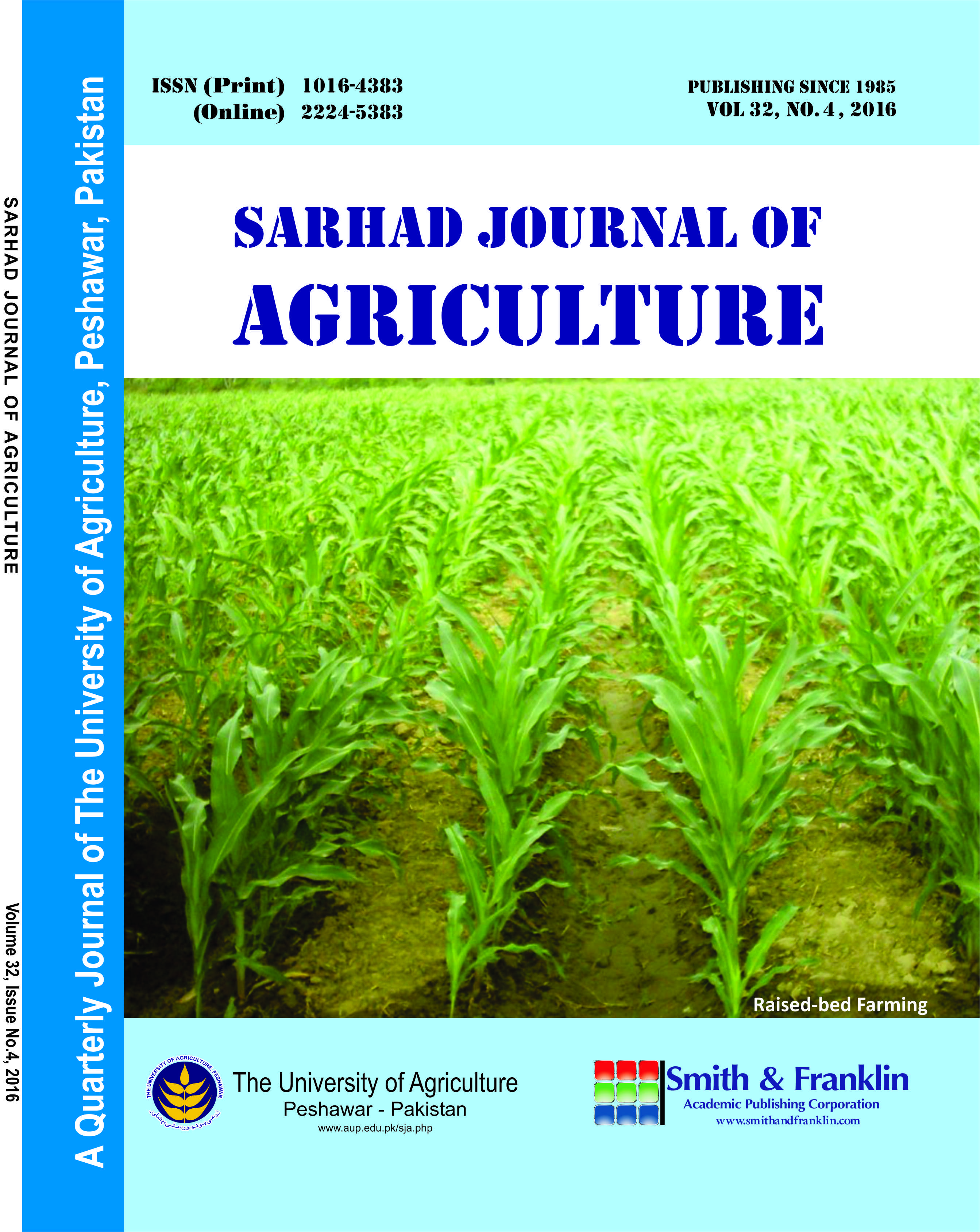An Assessment of Training Needs of Agricultural Extension Agents: A Study of Three Selected Districts of Khyber Pakhtunkhwa (KP), Pakistan
An Assessment of Training Needs of Agricultural Extension Agents: A Study of Three Selected Districts of Khyber Pakhtunkhwa (KP), Pakistan
Ayesha Khan*, Zubair Ahmad Khan and Urooba Pervaiz
ABSTRACT
The main purpose of the present study was to assess the training needs of the extension agents, to identify weaknesses in training programs and find obstacles in the use of computer technology which hamper the proper execution of extension services in three selected districts of Khyber Pakhtunkhwa (KP). Purposive sampling technique (sample taken on certain judgments about the population or researcher chooses who would be appropriate for the study) was employed to select three districts i.e. Peshawar, Mardan and Swabi from Agro-ecological Zone C of KP. The population of the study comprised of all extension agents of the selected district. Data was collected through a well-developed interview schedule from all Agriculture Officers and 41% of the Field Assistants (randomly selected) of the three districts. Thus, the total number of respondents for the study was 81. The interview schedule was quantitative containing closed-ended questions restricting the respondents to choose from the given options. The majority (90%) of extension agents needed training and the most demanded areas for training were Integrated Pest Management (IPM), computer skills and technology dissemination techniques. A small number (32%) of the extension agents reported weaknesses in the training courses attended and the predominant weaknesses reported were lack of incentive to attend the trainings, lack of management and improper time. Data regarding use of computer technology showed that 65% faced obstacles and mentioned that lack of computer knowledge, lack of training programs and lack of availability of computer were the major obstacles faced by them in use of computer technology. Chi-square results showed a non-significant association between literacy level and training needs while a significant association existed between literacy level and obstacles in use of computer technology. The study concludes that there is need for training in different areas and most face obstacles in computer usage. It is recommended that relevant training courses be arranged and needed equipment and facilities should be provided to minimize the obstacles faced.
To share on other social networks, click on any share button. What are these?







